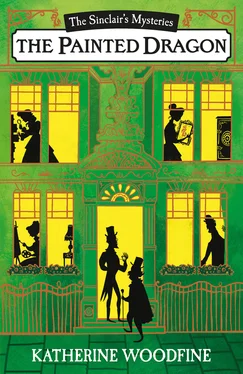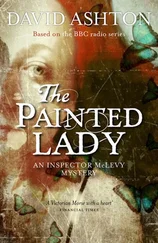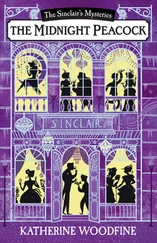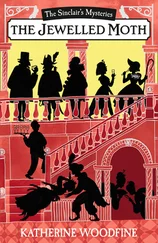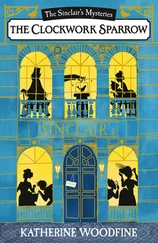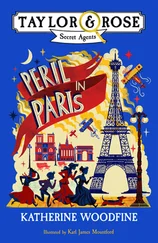‘Don’t tell me you’ve never heard of the Café Royal?’ Jack asked in surprise. ‘It’s where all the artists go!’
‘Oh, do come on, Jack,’ said Connie, impatiently. ‘She doesn’t even know what the Café Royal is – of course she doesn’t want to come.’
Leo felt her face flush redder, and she shrugged and shook her head. But Jack was still smiling at her. ‘Well, if you change your mind, you’ll know where we are,’ he said, before he was swept away, at the centre of a gabbling crowd of art students.
Leo was left alone to slowly pack up her things. She always seemed to be lagging behind the other students: she was used to being the last to leave, but today, as she made her way towards the door, Professor Jarvis stopped her.
‘Miss Fitzgerald – you haven’t put your name down to help with the exhibition.’
Leo shook her head. He stared at her for a moment, and she explained: ‘I just want to focus on my work for now, Professor.’
Professor Jarvis gave her a searching look. ‘Mr Lyle has seen your work, and he has requested you particularly for the exhibition, Miss Fitzgerald,’ he said in his dry voice. ‘If he takes an interest in your career, it could be very beneficial for you. I’d suggest you take him up on his offer.’
CHAPTER SIX
On London’s bustling Piccadilly Circus, Mr Randolph Lyle’s new exhibition was also creating plenty of conversation. In the Sinclair’s offices, high above the shop, it was time for an afternoon tea break, and the clerks were all discussing the news of the exhibition, while Billy Parker, the office boy, poured out tea from the big pot.
Billy felt that he was quite a different fellow to the one he had been just six months ago, when he had first started working at Sinclair’s. He had grown up a lot. For one thing, he was taller now: his mum had been complaining about how often she had to let down the sleeves of his jackets, and the legs of his trousers. The Billy of six months ago wouldn’t have cared very much if his trousers were too short or not – nor would he have taken such satisfaction in doing each little job carefully, whether it was preparing the clerks’ afternoon tea, or filing Miss Atwood’s papers. But, perhaps the biggest change of all was that these days, just like his uncle Sid, who was the Head Doorman, Billy felt proud to say that he worked for London’s finest department store.
Working for Miss Atwood, Mr Sinclair’s own private secretary, suited him in a way that being a shop porter never had. He enjoyed the company of the other clerks and the lively bustle of the offices. He liked seeing all the people who came and went – Miss Atwood, Mr Betteredge the store manager, and of course, the great Mr Sinclair, ‘the Captain’ himself. He liked being the person responsible for delivering the Captain’s own messages, in their special yellow envelopes, to staff around the store – tipping his hat to the salesgirls and waving a greeting to his old friends the porters as he went. He liked being able to answer the telephone, saying in his most important-sounding voice: ‘Good afternoon, Miss Atwood’s office, this is Parker speaking, how may I assist you?’
One of his favourite tasks was taking Mr Sinclair’s pug, Lucky, on her daily outing to the park. The little dog had become almost as much of a London celebrity as the Captain himself, and attracted a good deal of attention on these walks, especially on cold days, when she was wearing the little blue jacket with the gold Sinclair’s livery that had been specially made for her.
Most of all though, what Billy loved about being an office boy was being among the first to hear all the latest news. Billy loved a good story – and there always seemed to be something exciting to talk about at Sinclair’s. Today was no exception.
‘Some of those paintings are worth a mint. Proper famous, they are,’ reported O’Donnell, as he helped himself to another biscuit.
‘When do they arrive?’ asked Billy.
‘Next week,’ said Crawley. ‘Mr Lyle is going to oversee the hanging of them himself. Very particular, he is. He’s bringing some art students to help him.’
‘Well, he’ll not have much help from the Captain, that’s for sure,’ contributed Davies. ‘He’ll be away for another fortnight yet – that’s what Betteredge says.’
‘But he’s been gone weeks already! Whatever’s he up to?’
‘He’s out in the country. Buying himself a new house, or so I hear. Some great big country pile.’
‘That’s right,’ said Crawley, nodding authoritatively. ‘He’s setting himself up as a proper English gent. His valet told me he’s getting kitted out with tweeds and shooting outfits and the like.’
‘It’ll take more than a bit of tweed to make the Captain into an Englishman,’ said O’Donnell. ‘He’s a Yankee through and through!’
‘I heard that’s why he’s so keen to pal up with this Mr Lyle. He thinks Lyle might be able to recommend him for membership of Wyvern House,’ offered Davies.
‘Wyvern House! He’ll be lucky,’ said O’Donnell sagely.
‘What’s Wyvern House?’ asked Billy at once.
‘One of the oldest gentlemen’s clubs in London. It’s in the City, near the Bank of England. Very exclusive. You have to be invited to join, and they only take people from the best old families – lords and so forth,’ explained Crawley.
‘As a matter of fact, I had a great-uncle that was a member there once,’ announced O’Donnell.
‘Ha! You had a great-uncle who cleaned the boots there once, more like!’ spluttered Davies.
A bit of good-natured bickering broke out, until Miss Atwood stepped out of her office, and said in her clipped voice: ‘Back to work, if you please, gentlemen!’
Reluctantly, they put down their cups and headed back to their desks. But O’Donnell paused to throw the latest edition of the paper in Billy’s direction: ‘Here, you can read a bit more about the exhibition in there, if you like.’
‘What on earth’s a “Living Painting?”’ asked Joe, as Billy broke off to turn the page.
It was the end of another day at Sinclair’s, and the four of them were sitting cosily in the hayloft, the rain pattering gently on the roof above them. Until recently they had spent many lunches and tea breaks in this way, and had often met here after the store had closed to discuss whatever mystery they were solving. Billy had even taken to referring to it as ‘Detective HQ’.
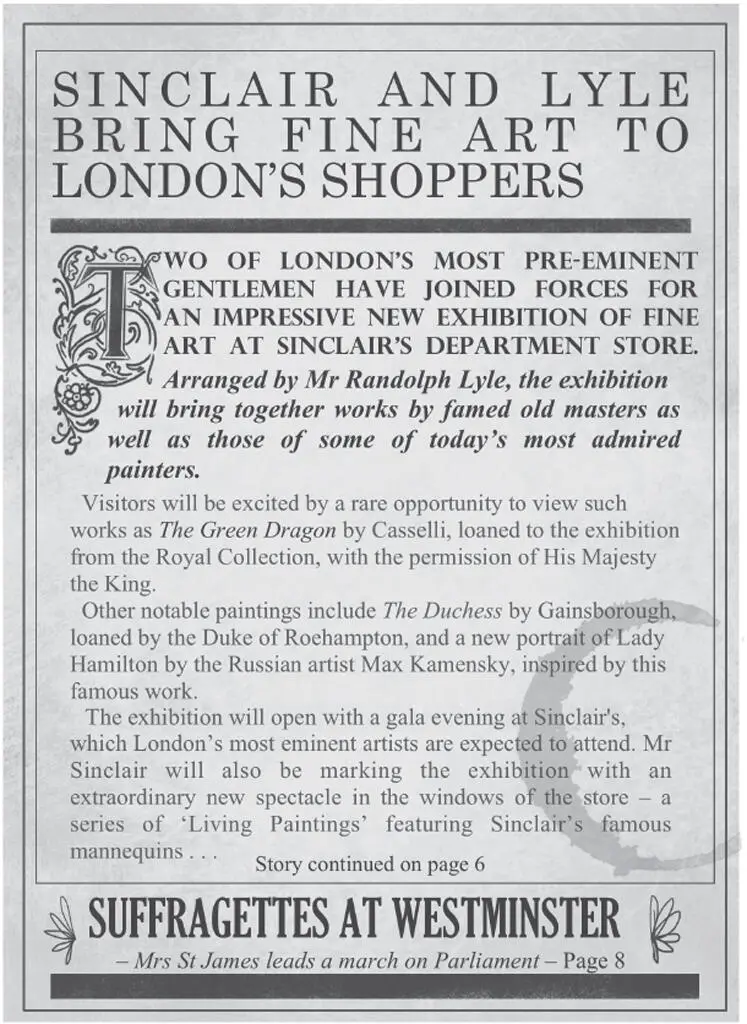
In the past weeks though, these gatherings had become rather less regular. The others always seemed to be so busy, Sophie thought now. Lil was occupied with her new play; Miss Atwood kept Billy busy in the office; and even Joe was immersed in life at the stable-yard. More than once, Sophie had found herself spending her tea breaks here alone, with only the day’s newspaper for company.
But today was different – they were all together again, crunching apples and passing around a bag of toffees that Sophie had bought with some of her hard-earned sixpence from Mrs Long. Sophie felt delighted to see the others. It was quite like old times.
‘The Living Paintings are Mr Sinclair’s latest big idea,’ explained Lil now. ‘A sort of stunt to help advertise the exhibition. Claudine is going to recreate a series of famous paintings in the store windows, and we – the mannequins – are going to pose there, just as if we were the people in the paintings.’
‘I thought you weren’t working as a mannequin very much now, because of the play,’ said Billy in surprise.
‘I’m not really, but I couldn’t resist this. It sounds like such splendid fun – and Mr Mountville at the theatre thinks it might be good publicity too. I’m to be a painting by Fragonard, and I wear a marvellous frilly pink dress, and I sit on a swing surrounded by flowers.’
Читать дальше
